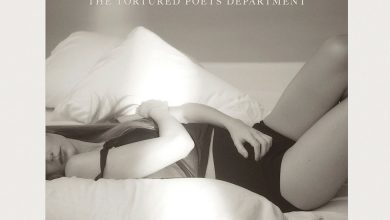Writing a Book About Grief Isn’t Always Cathartic

Here’s an immutable law of the publishing world: If you write a book about grief, everyone will want to know if the process was helpful. Do you feel better? Are you healed?
The answer, for Sloane Crosley, is no — or at least it’s less than yes, which is refreshing to hear. This willingness to acknowledge a gray area might be what makes her an excellent guide through treacherous territory.
Crosley is an essayist, novelist and former book publicist whose best-selling memoir, “Grief Is for People,” explores the one-two punch of a burglary and a death. The second devastation delivered the knockout blow: Russell Perreault was Crosley’s boss, who became her mentor and then her dearest friend. He ended his own life in 2019. He was 52 years old.
“Find one of us, pull the string, you’d find the other,” Crosley writes. “Ours was the kind of partnership that felt transferable. Give us a designer’s discount and we will decorate your house. Give us some forceps and we will deliver your baby. Give us adjoining desks and we will crack your case. We moved fluidly among the roles of parent, child, sibling and subordinate, swapping positions as they do in experimental theater.”
If you’re confused by the mixing of present, past and tenses, welcome to the land of loss.
“I didn’t find the book particularly cathartic to write,” Crosley said in a phone interview. “But what I’m finding so far is that it seems like it’s cathartic for people to read, and that is such an added bonus that I hadn’t planned on.” This might have something to do with the dearth of decent literature about missing a friend, or with welcome notes of humor throughout the book.
“Obviously it doesn’t work like it does in the movies,” Crosley said. “You don’t type the end and shut the laptop. But when I finished honing it and editing it, I really did think, ‘Well, now we can begin.’”
The response has been overwhelming and “extremely intense.” Crosley has been somewhat surprised by readers’ willingness to delve into such heavy subject matter, and also heartened by the stories and solidarity she’s been met with at bookstores. She said, “I’m not a professional healer or a professional empath, and my ability to help people is not particularly extraordinary. I go back to a place where I only know my own story. Where my skill set lies when it comes to this is as a human being, not as an author.”
When Crosley’s editor, Sean McDonald, sent her an email with a celebratory subject line, she knew that the attachment contained the best-seller list and that her name would be on it. She worked in the book industry for a long time, and she learned the ropes from an expert.



